- This feature was published in RAIL 906 (June 3-June 16).
There are many reasons why people choose to enter politics. To influence transport policy isn’t usually one of them.
Lilian Greenwood is certainly no different in this respect, despite her name having now become synonymous with this specific area of public affairs.
First elected a little over ten years ago on May 6 2010, to serve as the Labour MP for Nottingham South, it’s fair to say that transport has become the defining feature of Greenwood’s parliamentary career to date.
Best known for chairing the House of Commons Transport Select Committee between the elections of June 2017 and December 2019, she also had a four-year spell as a shadow transport minister (2011-15) followed by a brief stint on the Labour frontbench as shadow transport secretary (September 2015-June 2016).
Frustratingly for Greenwood, her time at Westminster has coincided with an extended period out of office for her party. But few MPs could claim to have followed and scrutinised Government transport policy to the extent that she has over the past decade. In fact, given the comings and goings of modern parliamentary life and its increasingly volatile nature, her close association to this single policy area seems nothing short of remarkable.
It is also an outcome that would have been difficult to predict ten years ago, with Bolton-born Greenwood admitting to having no pre-existing interest or particular enthusiasm for road, rail or any other form of transport.
Having previously served for 17 years as a Nottingham-based trade union official for Unison, her route to Parliament also offered no clues into how transport would quickly come to dominate her new vocation.
“I decided to do it because I’d been interested in politics for a long time and, like lots of people, had spent a lot of time shouting at the radio. I’d also worked in the trade union movement for more than 20 years, which seemed a really productive way to make a difference and tackle some of the issues I’d seen around me in terms of unfairness and inequality at work.
“But sometimes you can’t just do it via workplace organisation and negotiation, it requires political decision making too, which I guess is why the trade union movement set up the Labour party in the first place.”
A self-confessed novice in transport policy, it didn’t take long for Greenwood to become well acquainted with the subject. Her maiden speech in the House of Commons on June 3 2010 outlined that her immediate priorities would be to receive assurances from the newly installed coalition government on the future of several major capital investment programmes - including the widening of the A453 arterial road between Nottingham and the M1, and the planned Phase 2 extension of the city’s tram network (Nottingham Express Transit - NET).
With then-Chancellor George Osborne promising deep cuts to public spending, it was by no means certain that either scheme would survive the Comprehensive Spending Review of October that year.
“One of the first things that happened after the election was the cancellation of the widening of the A453 through my constituency, and the putting on hold of the decision to extend NET and build lines two and three,” explains Greenwood.
“They were issues that I wanted to take up in Parliament and were the subjects of my maiden speech and my very first question to the House, to which the response from the Leader of the House was that ‘the Honourable Lady should ask for an adjournment debate’.
“I had to go away and find out exactly what an adjournment debate was, but transport immediately became one of the issues that would be central to the work I’d be doing - including electrification of the Midland Main Line, which I haven’t quite managed to sort out yet.”
To the relief of Greenwood and her constituents, the Government did not withdraw its £500 million backing for NET and the new lines (to Toton and Clifton) opened in July and August 2015. Proposals for the A453 were also eventually approved in 2012, with the upgrade works completed by the summer of 2015.
The other result of this early immersion into transport policy was to encourage Greenwood to become a member of the Transport Select Committee, which she achieved in July 2010.
After appointing her as an assistant chief whip, opposition leader Ed Miliband then moved her to the shadow transport ministerial team little more than a year later. She would remain a permanent fixture there until the General Election of May 2015.
She says: “Having started doing some work around transport, I found it a really interesting area of policy. It wasn’t something I knew very much about, so joining the TSC seemed like a really good way of developing that knowledge.
“I then spent quite a long time on the shadow transport team, which was a real mix, and I did a number of different briefs including local transport and then rail in the run-up to 2015.
“I had no idea at the time that it would become such an important part of my time in Parliament, but I guess that once you start doing transport you become hooked.”
Ultimately the 2015 election would end in disappointment for Greenwood and her party, with Prime Minister David Cameron and the Conservatives winning a small but outright majority of 12 seats.
But the subsequent resignation of Ed Miliband as Labour leader and his replacement by Jeremy Corbyn in September 2015 brought with it a shadow cabinet reshuffle, and Greenwood’s promotion to the role of Shadow Transport Secretary.
Although at the time she described it as her ‘dream job’, her presence on the opposition frontbench as the face of bold flagship policies such as the renationalisation of Britain’s railways was to be short-lived. She opted to resign in July 2016, as part of a co-ordinated shadow cabinet protest against Corbyn’s leadership and his perceived failure to campaign strongly for the Remain side in the EU referendum.
In a speech made to her constituency party members, Greenwood also pointed to examples of when she had felt undermined by Corbyn. These included his decision to hold a shadow cabinet reshuffle on the day that Labour was due to launch a high-profile attack on the Government over rail fares increases (January 2 2016), and a press conference in which he said he might withdraw the party’s support for HS2.
Given the deep divisions that continue to hang over the Labour party and its supporters regarding Corbyn’s leadership, Greenwood is unsurprisingly careful with her words, and she does not dwell on this bittersweet period of her career.
“It’s fair to say that my time in the shadow cabinet wasn’t… there are things that I’m really proud of, but it was a difficult period. Obviously, I talked about that at the time I resigned, but when I think of the whole period I worked with an incredible group of people. It gave me the opportunity to meet people from across the industry and commentators on transport.
“I really enjoyed getting to understand transport better and what the issues are, and how incredibly passionate people in transport are about what they do. After leaving the shadow cabinet I had a complete break from transport, but it didn’t take me long to come back again because I really missed it.”
A short spell on the Education Select Committee followed, before that too was cut short by the unexpected June 2017 snap election called by Theresa May, who had succeeded David Cameron as Prime Minister in the wake of the EU referendum a year earlier.
Once again it led to defeat for Labour, although the result of a hung Parliament and the Conservative’s subsequent reliance on the Democratic Unionist Party for its majority would have lasting implications on the functioning and popularity of the new Parliament.
Intractable differences of opinion over the UK’s exit from the EU would go on to monopolise parliamentary proceedings. But away from the Brexit noise, Greenwood spotted an opportunity to return to the transport arena.
After rejoining the Transport Select Committee, she was successfully persuaded by one of her former parliamentary advisors to stand to be its new chairman, following the departure of fellow Labour MP Louise Ellman.
It was a crowded field with Greenwood eventually beating Bridget Phillipson into second place by 233 votes to 225, on the fourth round of voting.
She explains: “It was one of those ‘oh gosh’ moments when I realised that it would be crazy not to try, because having done transport for so long it would be a brilliant opportunity. I’d done nine months on the Education Select Committee in the run-up to the 2017 election, and really enjoyed going back to that scrutiny role and working on a cross-party basis.
“It seemed like a fantastic opportunity that I’d have kicked myself for if I’d not stood for it. But it was a hotly contested position, so I wouldn’t pretend that it was easy.”
In addition to making the difficult transition from committee member to committee chairman, Greenwood also had to rapidly shift away from the mindset of an opposition spokesman and its sole focus on picking holes in the Government’s agenda.
Leading a select committee would instead require a more rounded view whereby ministers are not just asked difficult questions, evidence is also sought of where the Government is getting things right in order for the committee to provide fair and balanced scrutiny.
As a former shadow transport secretary, Greenwood says she felt especially self-conscious of the need to appear even-handed if she was to gain the trust of the four Conservative members in particular who sat on her 11-person committee.
“There was an adjustment, there is no question. The chairs of various committees often make it look effortless, but when you’re in that position you realise the hard work that goes on in the background, and the marvellous team of House of Commons clerks who support the TSC. They were absolutely incredible, and I couldn’t have done the job without them.
“Having spent so long on the front bench in that department, I was really conscious of needing to make that change, too - because it is quite a different role and while we don’t always agree, I think there’s huge value in cross-party committees.”
Having put partisan interests to one side, Greenwood set about making teamwork a watchword for her chairmanship, while seeking the broadest possible participation in subsequent inquiries.
As the third consecutive female Labour MP to chair the TSC (following Louise Ellman in 2008-17 and Gwyneth Dunwoody in 1997-2008), she would also be guided by a need to increase diversity and inclusion in parliamentary proceedings.
“I was fairly conscious of filling some big shoes left behind by Louise and Gwyneth, so one of the things we did which I’m very pleased about is that we started to tackle diversity. I think some of the female witnesses we had - particularly from rail - were outstanding. And we did a really great event for International Women’s Day in 2019.
“Hopefully having a woman in the chair and more women witnesses encouraged more women to feel they had a role to play and showcased some of the fantastic women we have working in transport and rail.”
Greenwood now concedes that the TSC could have gone much further to promote diversity and to put it into practice, with herself and Ruth Cadbury (Labour, Brentford and Isleworth) providing the sole female representation on the TSC for much of the 2017-19 parliamentary session.
But more broadly speaking, Greenwood says she has few regrets and rightly feels proud of the enormous body of work that was achieved in just two and a half years.
A packed schedule of 13 different inquiries ranged from parking on pavements to filling potholes, plus a hard-hitting examination of the Government’s proposed Airports National Policy Statement and its recommendation to grant approval for a third runway to be built at Heathrow.
Meanwhile, rail-focused inquiries were launched into the Government’s change of policy on electrification, its handling of the East Coast franchise, and the causes of the May 2018 timetable meltdown.
The electrification and rail infrastructure inquiry was particularly pertinent for Greenwood, given that it directly touched on Secretary of State for Transport Chris Grayling’s controversial decision to cancel the wiring of routes to Swansea and Windermere, and of the Midland Main Line to Sheffield, Derby and Nottingham.
These schemes have yet to be re-approved, but it is widely accepted that the inquiry did much to keep electrification on the agenda and to encourage the supply chain to focus on cost reduction, making it an attractive option to ministers once more.
Greenwood says: “The two years of 2017-19 were undoubtedly incredibly tumultuous. I don’t know that people are going to hold up the TSC as the most important or significant part of that, but I certainly think there was a lot to be proud of in the work we did.
“I think we did a great job getting to the bottom of what went wrong on the East Coast franchise, for example. And in our investigation into the timetable fiasco we picked up on issues that other people perhaps hadn’t. I was really pleased that we made a particular focus on the needs of disabled people and how they’d been affected by that disruption.”
She adds: “I’d also like to think that as chair I was friendly but firm. I wanted to encourage people to give evidence, while there are others who need to be coaxed, held to account and asked tough questions.”
Greenwood’s time as TSC chairman came to an end late last year, when MPs finally gave the go-ahead to an early General Election so that the Brexit deadlock in Parliament could be broken.
Returned for a fourth time as MP for Nottingham South, Greenwood was prevented from standing again as TSC chairman due to the way in which select committee chairs are allocated between the main political parties, to reflect parliamentary arithmetic.
With the Conservatives gaining an 80-seat majority, the number of select committees chaired by Tory MPs has been increased from 13 in 2017-19 to 16, with the Transport, Environment Audit, and Science and Technology Committees all reverting to Tory chairmanship.
Although Greenwood successfully re-stood as a member of the TSC for the current parliamentary term, she was succeeded by Huw Merriman (Conservative, Bexhill & Battle) as chairman earlier this year.
She admits to feeling “gutted” that parliamentary rules restricted her time as chairman to just two and a half years, but she believes that Merriman (whom she nominated to take over in the role) will be highly effective.
Unlike any of his predecessors, he already faces a significant challenge in not being able to chair TSC sessions in person. The Coronavirus pandemic is forcing all proceedings to be conducted virtually until lockdown restrictions and guidance on social distancing can be lifted.
Greenwood pays tribute to the way in which Merriman has settled into his new role while rising to the various other challenges posed by Coronavirus, such as a rapid revision of the TSC’s schedule so that Secretary of State for Transport Grant Shapps could be questioned on his department’s response to the outbreak during the TSC’s first virtual meeting on March 25.
She says: “It requires you to be flexible and nimble in your thinking and Huw has already demonstrated that. Obviously, our agenda has had to adapt very quickly to these new circumstances, which has meant planning a different scheme of work and, of course, operating in a virtual environment.
“While we can’t sit in Parliament itself, we are having to operate by way of Zoom and Microsoft Teams and I think that’s a skill in itself. A committee room is something that’s familiar to us but trying to chair a committee over a virtual network is definitely quite different. I think he’s done a great job.
“We effectively didn’t have an Easter recess for the TSC. We had a session over Easter that was in private and then another on HS2 that was in public, so we’re all very much continuing with the work and adapting to the new circumstances which, as I say, creates some real challenges.”
Despite Coronavirus now providing a steady backdrop to national life and posing serious questions over the future operation and structure of public transport, Greenwood believes that many of the core issues for exploration by the TSC remain unchanged.
Amid fears that a collapse in passenger numbers of up to 95% could undermine the business case for major rail infrastructure schemes such as HS2, she expects these multibillion-pound injections of public money to play a leading part in reversing some of the economic damage caused by the outbreak (RAIL 905).
She also anticipates that additional government commitments both to reform the rail industry and to decarbonise the network will remain undiminished, despite uncertainty over when (or if) demand for rail travel will return to pre-pandemic levels.
“A lot of the change that is coming in the months ahead, even leaving aside the Coronavirus, are following through on things we started to explore in our inquiries in the last parliament.
“I think if we hadn’t had the General Election and indeed gone into a health crisis, then there’s some really interesting scrutiny around what’s coming out of the Williams Review, what’s going to happen to fares reform, future investment in the railway, and the decarbonisation agenda.
“Now the focus is inevitably going to be on the pandemic and what the measures introduced mean for public transport. It raises questions about future investment programmes, about the impact it will have on passenger numbers, on what choices we make in future, and a whole new area of issues to address that we perhaps hadn’t anticipated.
“They’re quite a meaty set of challenges to get to grips with, but I think that many of the underlying challenges - whether that’s to rethink the way our rail system operates or to tackle the very urgent issue of climate change - are still going to be there.
“Perhaps the context in which we’re going to have to address those will have changed very significantly, but I think the TSC has a really important role in scrutinising how the Government responds to the new circumstances and in making sure it makes the right decisions.”
Greenwood says she will be generous with her time should Merriman require any advice on how to navigate his way through this vastly altered transport landscape. But having now passed on the baton, she expects him to develop his own style of chairmanship and provide strong leadership.
“I’m gutted about not being able to chair the committee, but I know it’s in safe hands and obviously I’m still a member and able to play my part. Huw’s passionately interested in the subject, particularly around being a consumer champion for those wanting to hold their operators to account, and I think there are many areas where he’ll want to develop his own style and approach.
“Like me, he recognises the need for the committee to operate in a cross-party way. He’s also well-liked and respected in parliament, which is important in trying to take the work of the committee forward.
“He knows he can pick up the phone to me any time he wants. We’ve certainly had a chat about the role, and he knows my views on how I approached it. But he has his own views about taking things forward and it’s quite right that he should want to stamp his authority and do things his own way.”
Looking ahead to her personal future, Greenwood has no plans to turn away from her parliamentary focus on transport.
But now freed from the time constraints of chairing the TSC, she is open to exploring other parliamentary avenues, and on March 3 she was announced as chairman of the House of Commons Finance Committee.
On her preparedness to return to Labour’s front bench under new Leader of the Opposition Sir Kier Starmer, she is non-committal. Instead, she is giving her full backing to new Shadow Transport Secretary (and MP for Oldham West & Royton) Jim McMahon.
She concludes: “I was keen to rejoin the TSC after the election and I remain very interested in this policy area and holding the Government to account. But it’s not the only area I’m interested in and there are other things that I now have more time in this parliament to pursue.
“I’m very happy with my role on the back benches and I’ve already had a chat with Jim, who I’m looking forward to seeing take that role forward. He formerly had transport responsibility when he was leader of Oldham Council, so he brings great insight to the role. I’m looking forward to seeing how he develops Labour party policy.”
Nobody knows exactly what the next ten years will hold for Lilian Greenwood, but it does sound as if we’ve not heard the last of her.
Knowledge and expertise
“The thing that I’ve really valued throughout the time I’ve been involved in transport policy is that willingness from people in the industry to share their knowledge and expertise.
“I would like to say thank you to Nigel Harris and everyone at RAIL, but also everyone else who has taken time to help me learn a bit about the way the industry works and what the challenges are.
“I’m confident that everyone will work with all my colleagues on the Transport Select Committee and the new chairman Huw Merriman in the same way, and share that passion and expertise.
“Ultimately, we all want a successful transport network. We don’t necessarily agree on how we’re going to get there, but I think maintaining that dialogue and understanding is really important.”

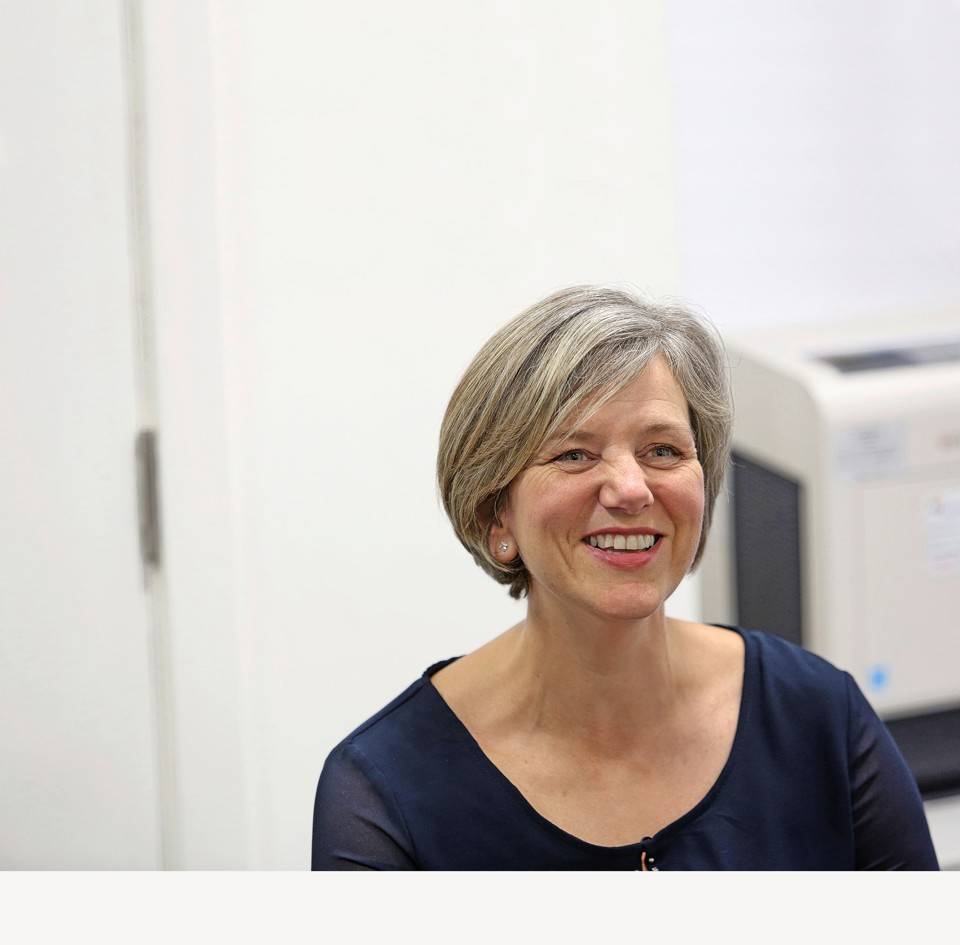
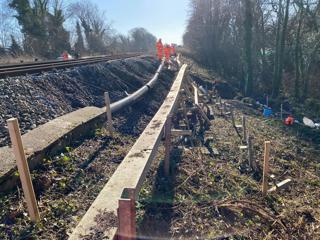
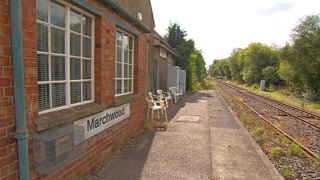
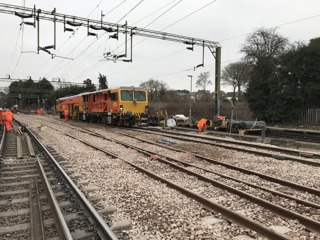
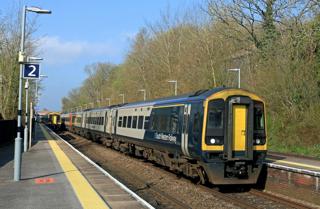
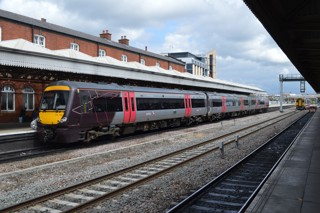











Login to comment
Comments
No comments have been made yet.